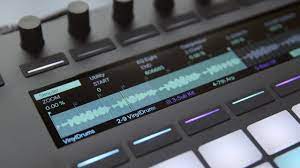The Importance of Introducing Electronic Music Lessons in Secondary Schools

The Importance of Introducing Electronic Music Lessons in Secondary Schools
Music education has long been cherished in the UK for its ability to nurture creativity, critical thinking, and emotional expression. However, recent budget cuts and shifting priorities have led to a decline in the vibrancy of music education. To reinvigorate this essential aspect of learning, the integration of electronic music lessons into secondary education offers an innovative and engaging approach. By harnessing technology and embracing contemporary musical trends, educators can inspire students, bridge generational gaps, and ensure that music remains an accessible and relevant subject in schools.
The digital age has revolutionized the music industry, with electronic music playing a pivotal role in shaping modern sounds. Incorporating electronic music into secondary education recognizes the relevance and significance of current musical trends. When students can relate to the subject matter and perceive its real-world importance, they are more likely to be enthusiastic about learning. The inclusion of electronic music in the curriculum empowers students to engage with music that resonates with their daily lives and cultural experiences.
Electronic music provides an unparalleled avenue for creativity and experimentation. Unlike traditional music classes that may confine students to specific instruments or genres, electronic music allows learners to explore a vast array of sounds, rhythms, and textures using software and hardware tools. Students can compose original pieces, remix existing tracks, and manipulate sounds to create unique sonic experiences. Such an approach not only nurtures creativity but also encourages innovation, problem-solving, and thinking outside the box.
Incorporating electronic music lessons offers an opportunity to introduce students to music production software, synthesizers, MIDI controllers, and other modern music technology tools. Developing proficiency in these technologies equips students with valuable transferable skills, including digital literacy, audio engineering, and production techniques. These skills are not only relevant to the music industry but also to various creative fields and technology-driven careers.
Electronic music often involves collaborative efforts among artists, producers, and sound engineers. Integrating electronic music lessons in secondary education encourages teamwork and communication skills. Students can collaborate on group projects, share ideas, and contribute their unique strengths to create a cohesive piece of music. This collaborative environment fosters a sense of community, encouraging students to support and learn from one another.

One challenge in traditional music education lies in the cost and availability of musical instruments. Electronic music offers a more accessible alternative, as digital audio workstations and software synths can be more affordable and readily available than traditional instruments. By embracing electronic music, schools can level the playing field and provide equal opportunities for students from diverse socioeconomic backgrounds to participate in music education.
Today’s students are digital natives, raised in an era of technological advancements and instant connectivity. Integrating electronic music into secondary education meets students where they are, leveraging their familiarity with technology to enhance their learning experience. By using tools that resonate with their generation, educators can establish a deeper connection with their students and create a more engaging and enjoyable classroom environment.
The introduction of electronic music lessons in secondary education has the potential to inject vibrancy into music education in the UK. By embracing modern musical trends, fostering creativity and innovation, imparting music technology skills, promoting collaborative learning, expanding music accessibility, and connecting with digital natives, educators can reinvigorate music education and ensure its relevance and value for years to come. Embracing electronic music empowers students with essential skills and keeps music education aligned with contemporary musical practices and societal changes. As the UK seeks to evolve its education system, embracing electronic music represents a step toward a more vibrant, inclusive, and enriching music curriculum.
Written by: AIT
Electronic Music Lessons Secondary Schools

Post comments (0)